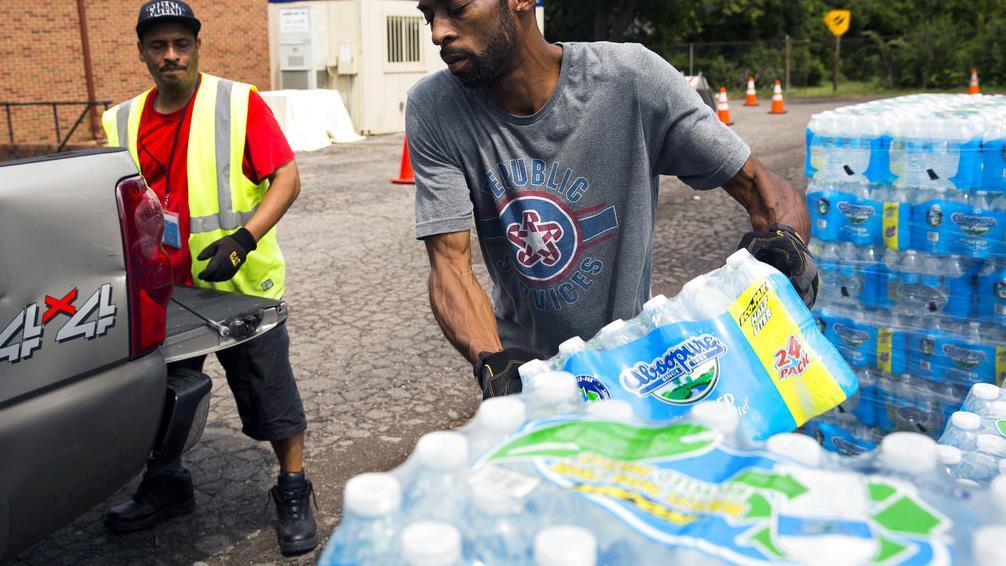Residents in Flint, MI sue JPMorgan Chase, Wells Fargo and Stifel over toxic contamination of water supply
The suit claims the banks funded a municipal bond sale for a new pipeline that emitted lead-tainted water
JPMorgan Chase & Co., Wells Fargo, and Stifel, Nicolaus & Co. are being sued for allegedly aiding and abetting actions that led to the toxic contamination of the water supply of Flint, Michigan, according to a report.
The lawsuit, filed on behalf of 2,600 children in federal court in Detroit, claims the banks funded a $220 million municipal bond sale for the construction of a new water pipeline which emitted lead-tainted water in a disaster that upended life in the poor, majority-Black city.
“All three knew 100% that if they participated in the bond sale, children would get hurt, children would be brain damaged and people's lives would forever be changed,” said Corey Stern, a lawyer at Levy Konigsberg LLP who filed the lawsuit. “But rather than doing the right thing, the ethical thing, the moral thing, they participated with government defendants in creating that situation for the kids in Flint because of the money that they stood to earn.”
The monetary damages could be worth at least $2 billion.
GET FOX BUSINESS ON THE GO BY CLICKING HERE
“JP Morgan Chase, Wells Fargo and Stifel locked arms with the city of Flint. They locked arms with the Treasury Department. They locked arms with the DEQ. They locked arms so tight that it was impossible to tell one from the other,” Stern added. “And in doing so, they violated every citizen of Flint's right to bodily integrity.”
Flint community activist Arthur Woodson commended the latest action demanding accountability.
“I’m ecstatic because they're bringing more attention now and show people it was about them making money, not saving money,” Woodson said of the lawsuit.
“For them to go after the bank, that’s for real, you’re getting ready to fight,” he added.
The lawsuit is designed primarily to benefit children, who were most vulnerable to the debilitating effects of lead that fouled drinking water after Flint switched its source to save money in 2014 while under supervision of a state financial manager.
City workers followed state environmental officials’ advice not to use anti-corrosive additives. Without those treatments, water from the Flint River scraped lead from aging pipes and fixtures, contaminating tap water.
The disaster made Flint a nationwide symbol of governmental mismanagement, with residents of the city of nearly 100,000 lining up for bottled water and parents fearful their children had suffered permanent harm. A criminal investigation that has resulted in only misdemeanor no-contest pleas so far was resumed last year.
Lead can harm people at any age but is especially dangerous to children, potentially damaging the brain and nervous system and causing learning and behavior problems.
Flint had long purchased drinking water from Detroit, about 70 miles south, but switched to the Flint River in April 2014. It was among money-saving measures recommended by an emergency manager appointed by then-Gov. Rick Snyder.
CLICK HERE TO READ MORE ON FOX BUSINESS
Residents complained that the water was discolored and tasted and smelled bad. They blamed it for rashes, hair loss and other health concerns, but local and state officials insisted it was safe.
Researchers with Virginia Tech University reported in summer 2015 that samples of Flint water had abnormally high lead levels. A group of doctors subsequently announced that local children had high lead levels in their blood.
Snyder, a Republican, eventually acknowledged the problem, accepted the resignation of his environmental chief and pledged to aid the city, which resumed using Detroit water.
Many residents used bottled water for drinking and household needs for more than a year. Researchers said in late 2016 that lead was no longer detectable in many homes.
Wells Fargo didn’t return Fox Business’ request for comment Wednesday. While Stifel, Nicolaus & Co. told FOX Business: “We have no comment at this time" and JPMorgan Chase declined to comment.






















